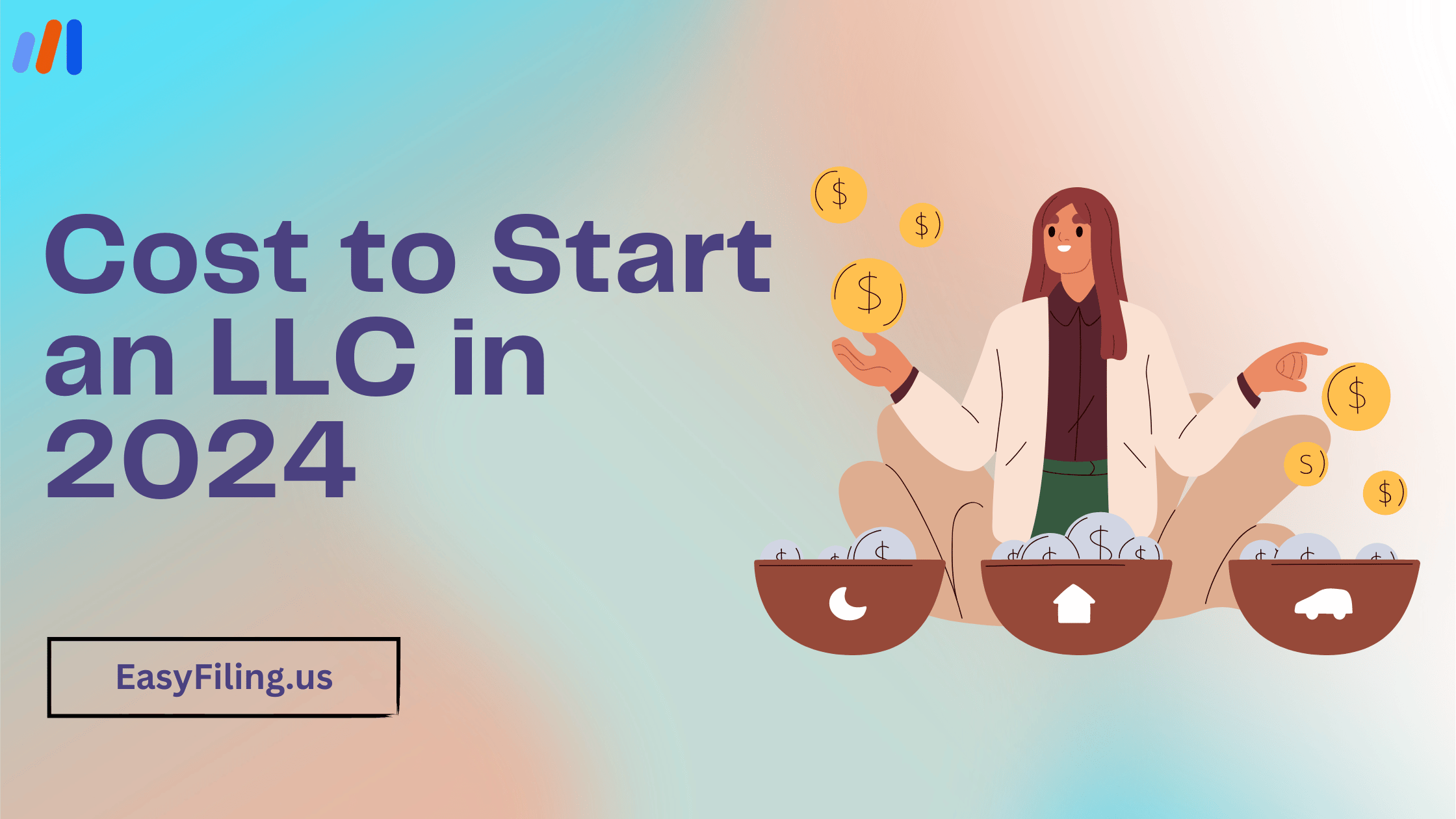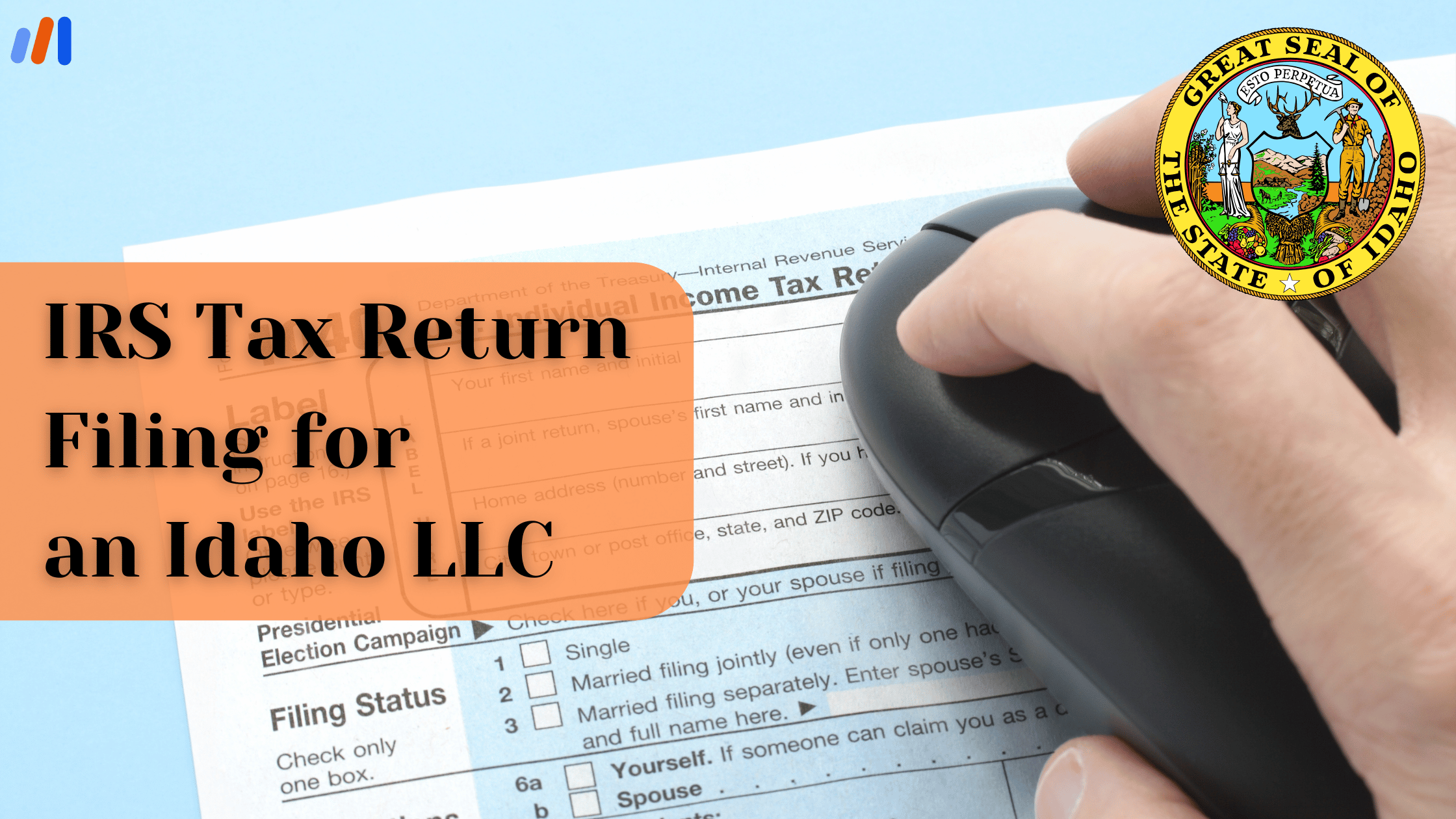Limited Liability Company (LLC) is one of the most rising and demanding company formation types in the United States as the business owners can enjoy LLC tax benefits.
Also, forming an LLC avoids your business in double taxation as the Internal Revenue Service (IRS) considers LLCs as pass-through entities.
Likewise, being an LLC owner, you can choose several business structures like a sole proprietor, partnership, c-corporation, or s-corporation and pay taxes accordingly.
How are LLCs Taxed?
LLCs are taxed according to the business structure the business owner chooses to operate such as:
Sole proprietorship – Sole proprietorship requires a business owner to report the annual profit or loss of the business on the personal income tax return. Similarly, while filing tax, the business owner must file a Form 1040 and a Schedule C.
S Corporation – S Corporation business owners need to file a Form 1120S to file annual taxation but aren’t required to pay corporation taxes on the business owner.
C Corporation – To file an annual tax return as a C Corporation owner, you must file Form 1120. Unlike in S Corporation, C Corporation has to report the taxes of individual corporation members. However, if C Corporation doesn’t pass its income through the members, they don’t have to pay tax on that income.
Multi-Owner Partnership – This LLC owner has to file a Form 1065 and each owner has to pay taxes as per their share of the profits or losses. The individual shareholders have to report their tax filing a Form 1040 and a Schedule K-1.
LLC Tax Benefits for Foreigners
Wyoming and Delaware are the most popular states to form an LLC for Foreigners as they receive the maximum tax advantages. Also, Wyoming and Delaware LLCs are only liable to pay taxes if any of the following conditions apply.
- You are a citizen of the United States
- Your company has full-time employees in the United States
- Your company owns or rents property in the United States
- You spend more than six months in the country each year.
If none of these criteria apply to your situation, then forming a US LLC will likely result in not having to pay income tax in the United States.
5 LLC Tax Benefits
1. Tax Flexibility
Forming an LLC gives the business owners multiple options for paying taxes as per the business structure such as a sole proprietorship or partnership, a C corporation, or an S corporation. Therefore, the owner gets the flexibility in choosing whether the taxes are to be paid as a corporation or as a pass-through entity.
2. Pass-Through Taxation
LLCs and multi-member LLCs can be taxed as pass-through entities. This means that for tax purposes, an LLC is by default considered to be a partnership, whereby business profits and losses pass through it and are entered into personal income tax returns of owners based on their share.
The said LLC does not pay income taxes at the federal level under pass-through taxation. Instead, partners report a part of the company’s profit or loss on their returns and they pay taxes according to their rates. There are no double taxes like those imposed on C corporations where both corporations and shareholders are individually subjected to tax.
In case the management or proprietors of an LLC feel that a C Corporation structure will better meet their objectives, they can transform the entity into one by submitting Form 8832 with the IRS which causes it to be regarded as a corporation for tax purposes.
3. Avoiding Double Taxation (Tax Deductions)
Being taxed like sole proprietorships or partnerships saves people trouble about double taxation. The thing is: it refers to situations where corporations pay taxes for earnings after which these dividends get taxed again when individual shareholders file their income returns. Thus, one amount will have been taxed twice reducing overall profitability among its stakeholders.
However, if your intention is not to undergo corporate taxation you can avoid this altogether. In this case, your revenue faces only one incidence of taxation at a personal level making your taxing process easier and possibly saving you money. It particularly offers small business owners or entrepreneurs who need more ways to get everything they want from their trade in terms of earnings maximization.
4. QBI Deduction
Pass-through entities such as S corps and LLCs qualify for the Qualified Business Income (QBI) deduction also known as Section 199A deduction, which allows businesses to deduct up to 20% of their income along with all standard itemized deductions. Your business must be related to any one area of service trades or professions for you to be eligible.
The deduction is based on net profit minus certain gains and is subject to income thresholds, with single filers earning under $191,950 eligible for the full deduction, and joint filers under $383,900. Partial deductions apply to those with higher incomes within specified ranges.
5. Potential Self-Employment Tax Savings
By choosing S corporation taxation, LLC members can save a significant amount in terms of self-employment taxes. Since dividends as well as profits are not considered wages only the owner-employee’s salary will be used when determining the self-employment tax.
This tax structure enables individuals who make part of an LLC to minimize their tax liability by distinguishing between earnings that attract self-employment tax and those that do not. Further still, electing for S Corp status may have additional advantages like possible eligibility for some deductions or credits hence making it a good option for several small-scale enterprise owners.
Frequently Asked Questions (FAQs)
How is pass-through taxation applied in the context of an LLC?
With pass-through taxation, the company does not pay federal income tax as a corporation. Instead, profits and losses are passed through to owners who report them on their tax returns. This allows for personal-level taxation that might reduce overall taxes paid. In addition, it simplifies the tax process since such a business does not have to file separate federal returns.
Are there other deductions available only for LLCs?
LLCs can benefit from multiple deductions such as health insurance premiums, retirement contributions, and home office expenses. Likewise, they may write off expenses related to business travel, meals, or even some education expenses in support of business growth. All these deductions greatly reduce the taxable earnings of the company providing significant savings.
What is the significance of an LLC’s tax flexibility for small business owners?
The flexibility enables owners to select a structure that supports both their financial interests and minimizes their tax burdens thus enabling them to prepare ahead financially. The exercise leads to significant savings and better use of resources all of which culminate in improved financial well-being across the board in running any kind of firm.
Are there any tax credits that LLCs can get?
Certainly, various federal and state-level programs provide tax credits for research & development activities among other categories like new employees hiring or investments in renewable energy projects which eligible limited liability companies (LLCs) can claim. These incentives significantly lower taxation generally while promoting sustainable commercial expansion. By utilizing these credits, corporations can place more funds towards innovation efforts, manpower increase, or being eco-friendly in manufacturing practices respectively.
File Your LLC Today
25$ off with a coupon
Lock in EasyFiling's transparent rates and get lifetime compliance support at no extra cost.
Get Started Now







